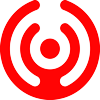二四、日省吾身 知過必改
1 Confucius said to “stay at a respectful distance from deities and ghosts.” He also said “if a person offends heaven, even if he goes to any temple to pray, it is of no significance and of no use.”
1 孔子講敬鬼神而遠之,又說:「獲罪於天,無所禱也!」
2 From there you know that the Chinese prayed more than two thousand years ago. If you do something against your conscience, you need to pray and repent.
2 由此可知,中國兩千多年前就有祈禱。如你做了有虧良心的事,就要禱告悔改。
3 Strivers of the Church treat prayer and chanting, reflection and repentance as a cardinal discipline that is practiced daily.
3 我們天帝教將祈禱親和、反省懺悔視為一門功課,要每天遵行。
4 Zengzi [a disciple of Confucius] once said: “I examine myself daily on three counts. First, have I been loyal and done my best when I was asked to do something for others? Second, have I been sincere and honest with my friends? Third, have I reviewed the materials and carried out what my teacher has taught me?” This is to say that he examined himself three times a day.
4 曾子曰:「吾日三省吾身,為人謀而不忠乎?與朋友交而不信乎?傳不習乎?」也就是說,他每天要自我省察三次。
5 In this industrial society, we do not have time to practice the same way, so I ask you all to reflect before you go to bed every night on your deeds if you have done anything against your conscience in dealing with people and matters.
5 現在是工業社會,我們沒有時間也不可能這樣做。因此我只要求各位,每天晚上臨睡前,一定要檢討今天一天,做人處事有無違背良心之處。
6 As humans, unlike saints or sages, no one can be free from errors. Anytime you made a mistake, you want to correct yourself right away. If you have made any mistake, you can confess and repent before God. Then, a day will come when you will be mistake- free, and become good people with high moral standards.
6 人非聖賢孰能無過。何時有錯,何時改。只要能在 上帝面前認錯懺悔改過,就有可能有一天不再犯錯,而成為一個有高道德標準的善人。
7 My fellow strivers, you need to know that what I have asked you to do is nothing superstitious. It is strictly correct, aboveboard and a practical belief.
7 天帝教信徒要知道我要你們做的,沒有一點迷信色彩,完全是「正信」,是正大光明而切實際的信仰。
Tianji Traveling Palace, December, 1984
天極行宮-民國七十三年十二月
